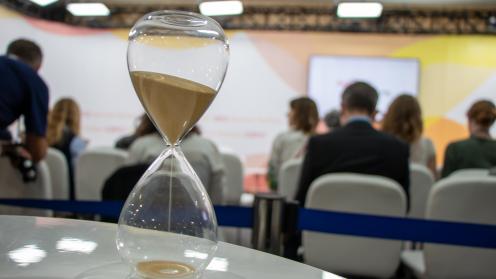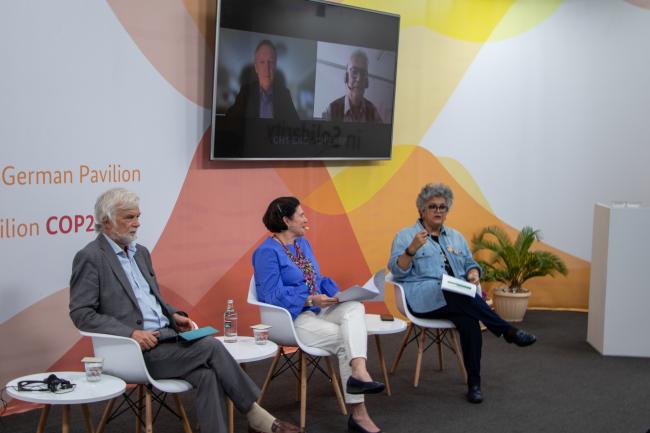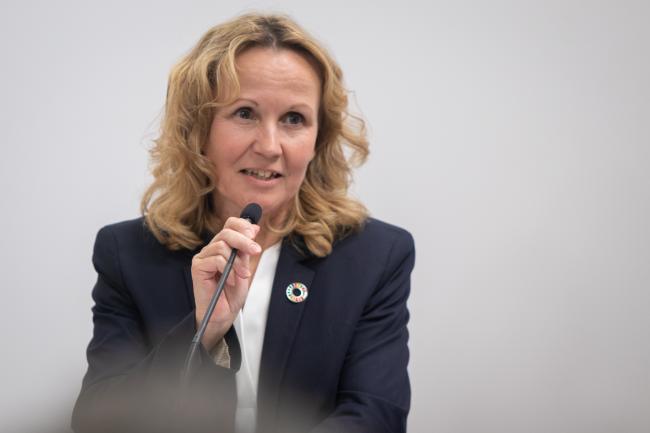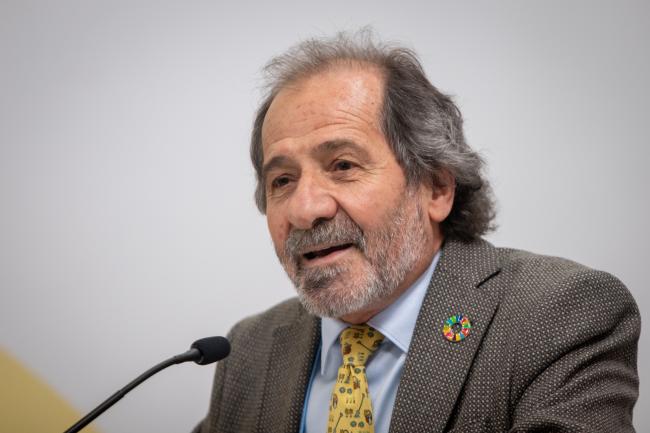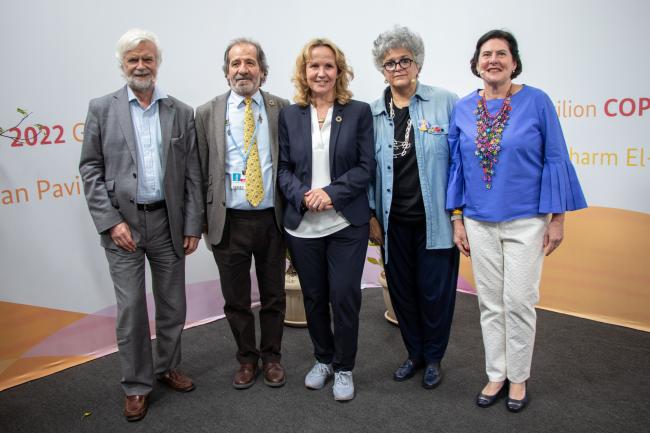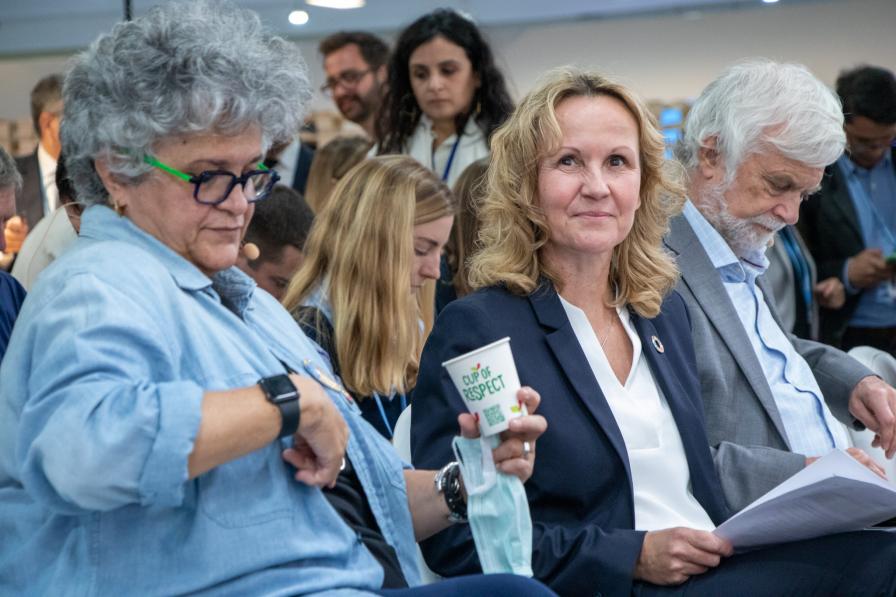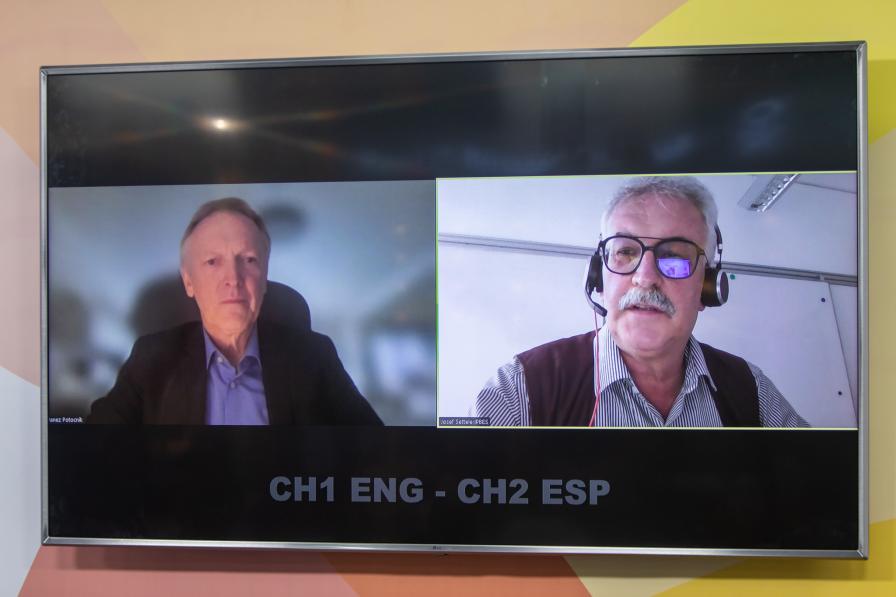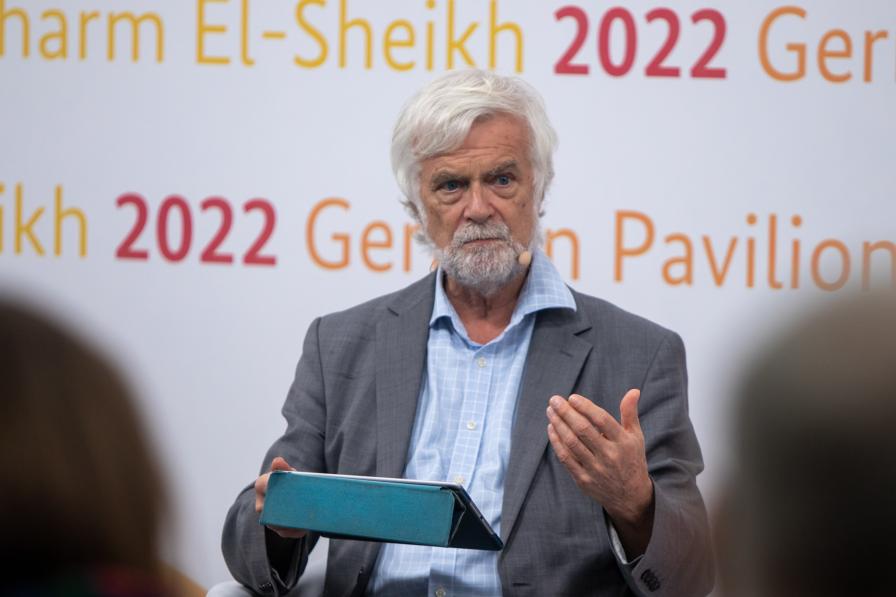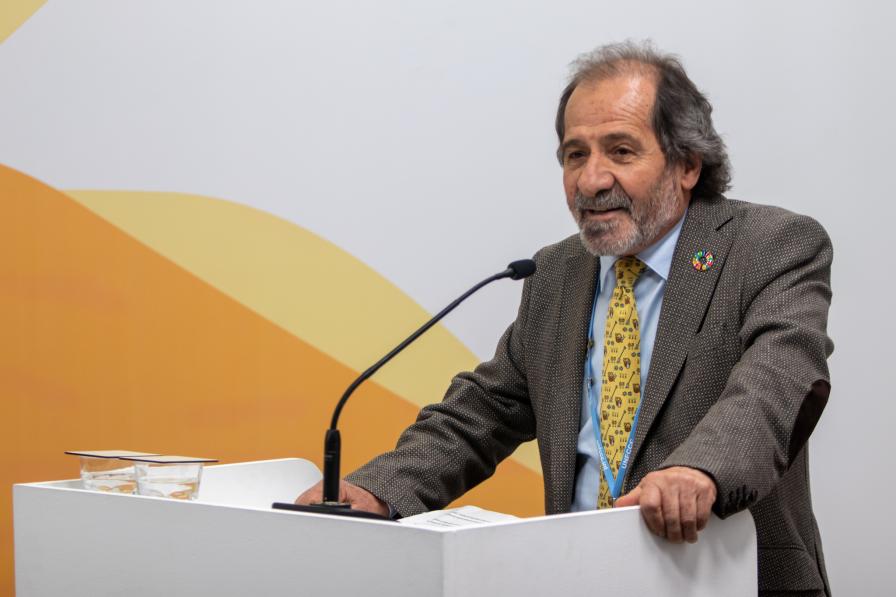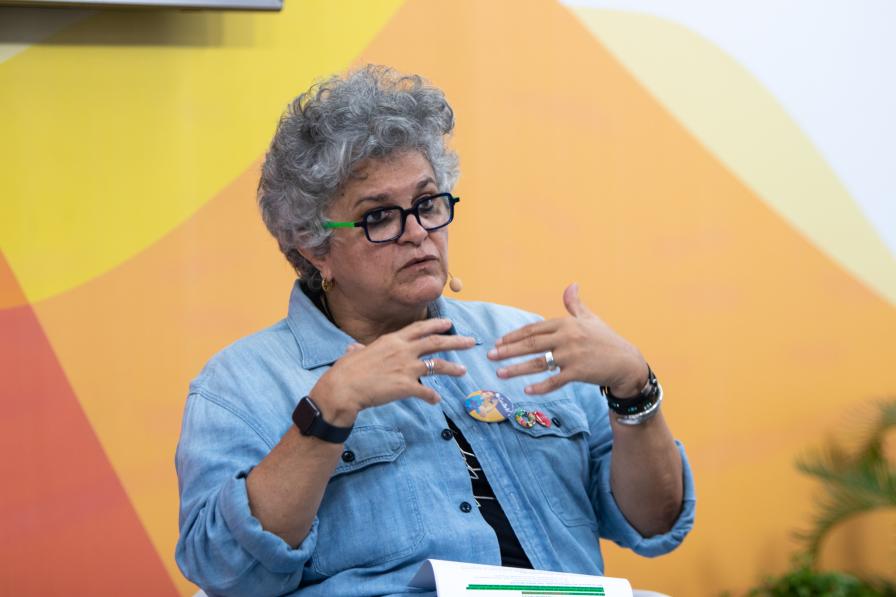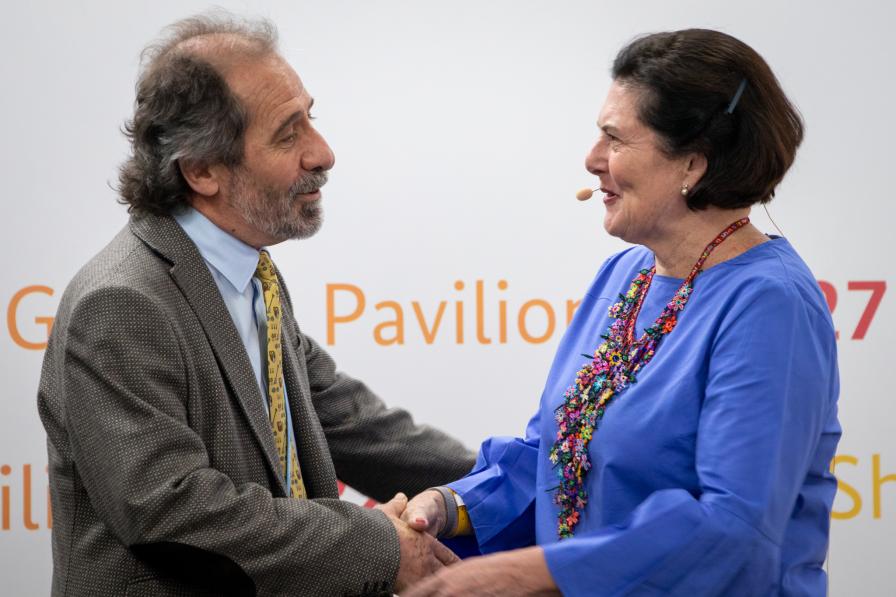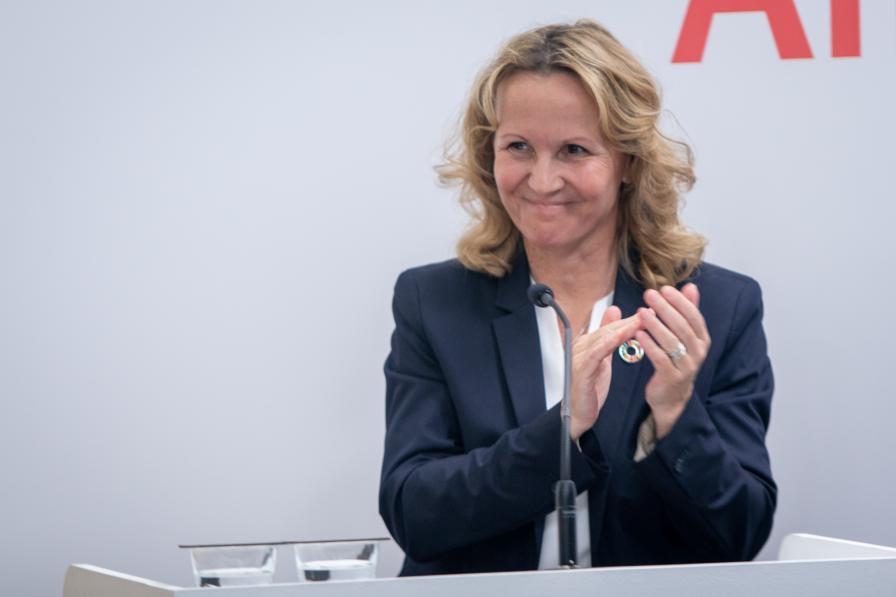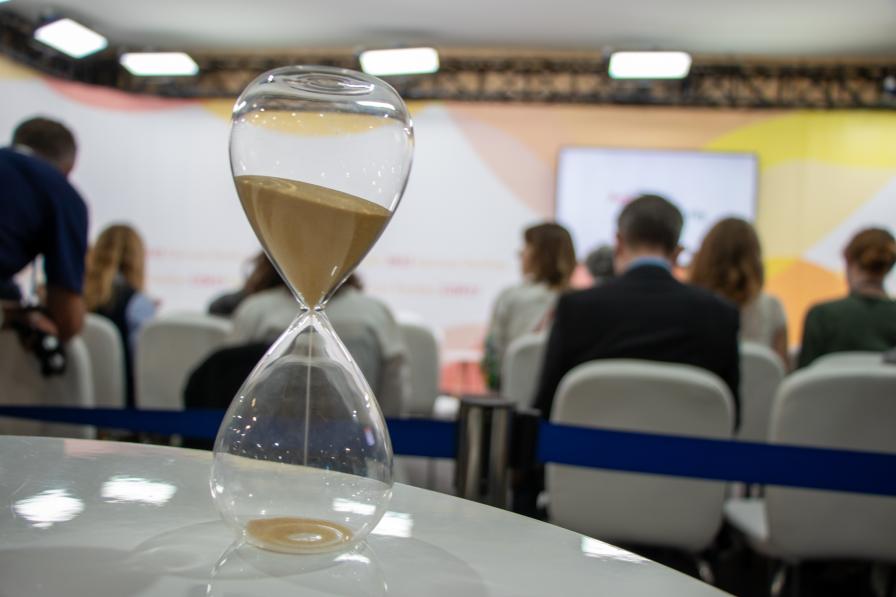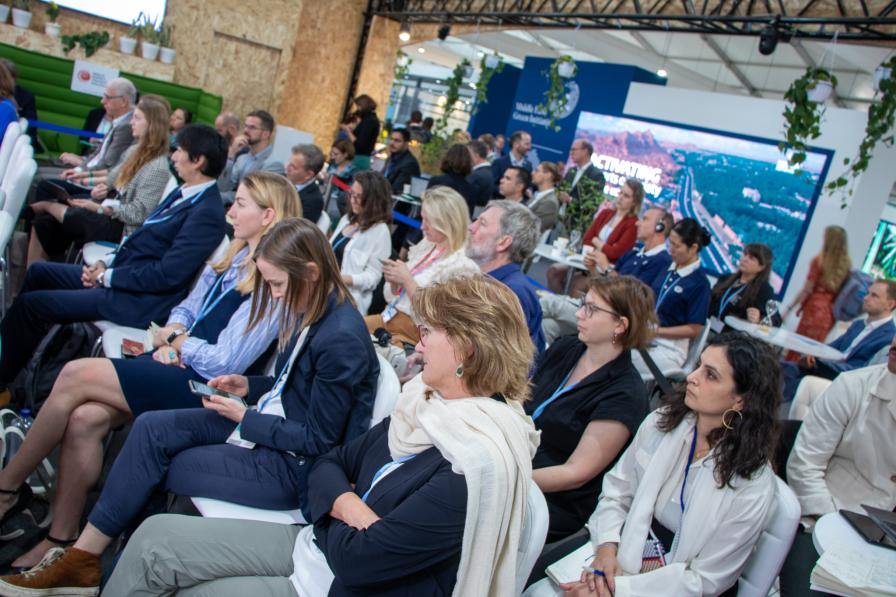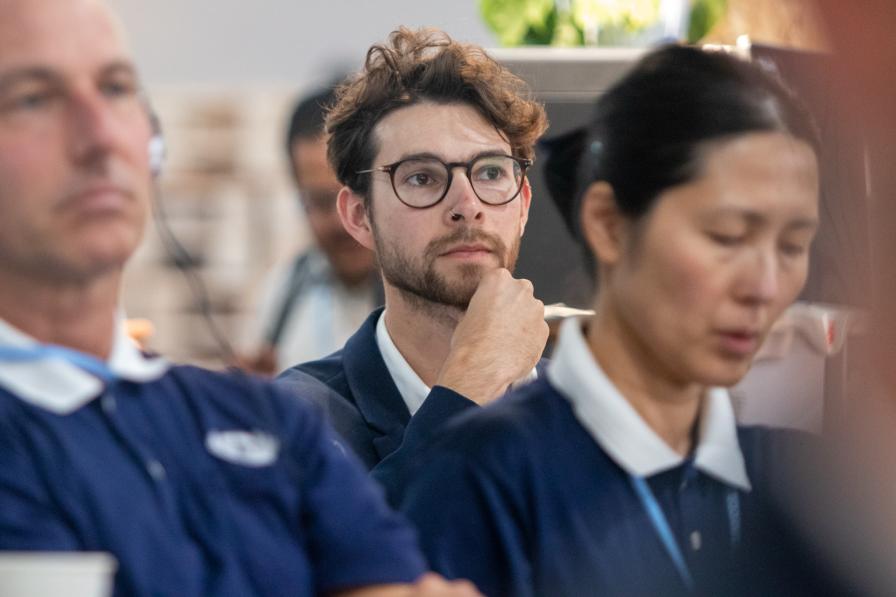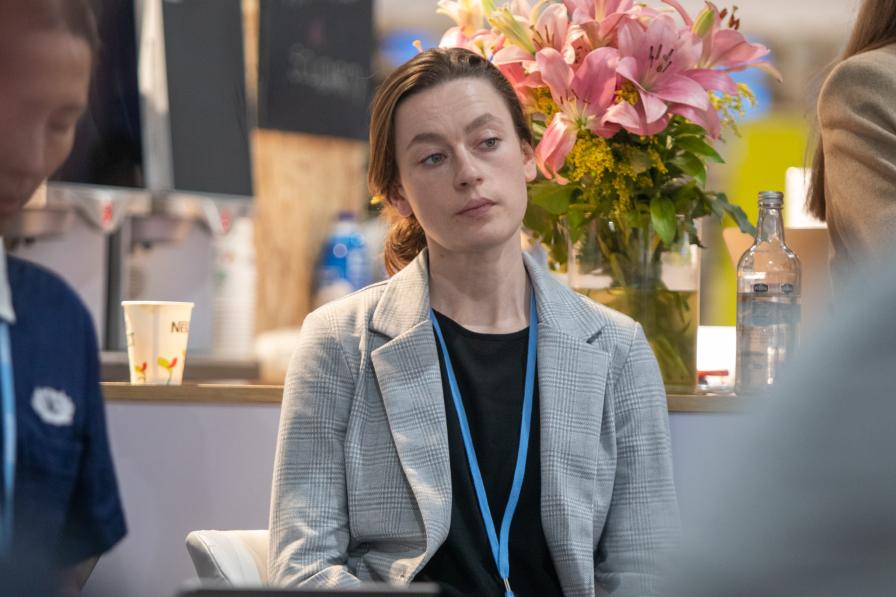About
IPCC, IPBES, and IRP leaders gathered at a side event to answer how to address the triple planetary crisis while ensuring resource efficiency and economic wins.
The urgency of decarbonizing our world is clear, but how can we also harness the power of economic and resource efficiencies in ways that address the global crises of pollution, climate change, and biodiversity loss? In line with the recognition under the German presidency of the G7 that the Sustainable Development Goals (SDGs) and the objectives of the Paris Agreement can only be met by transitioning away from linear, fossil-fuel based systems, science experts and policy leaders at this event sent the message that it is crucial to implement sustainable and equitable production and consumption processes.
Moderator Giovanna Valverde, Costa Rican Permanent Representative to the UN Environment Programme (UNEP) and UN-HABITAT and Ambassador to Kenya, opened the event by stressing the need for “dematerialization” to achieve climate targets by ending unsustainable production and consumption of materials. Valverde noted the event’s panel was a unique gathering of experts offering resource efficiency and circular economy insights from three key science-policy groups: IPCC, IPBES, and IRP.
In her keynote remarks, Steffi Lemke, Federal Minister for the Environment, Nature Conservation, Nuclear Safety and Consumer Protection, Germany, underscored that efforts to address climate change, biodiversity loss, and pollution have paid insufficient attention to resource management, even though half of global greenhouse gas (GHG) emissions and 90% of biodiversity loss can be attributed to resource extraction and processing. Lemke stressed that solutions that keep raw materials in economic cycles longer, such as recycling, repurposing, and repairing end-of-life products, can reduce overall resource use and ensure happier and more prosperous lives.
Following Lemke’s keynote, Francisco Javier Canal Albán, Vice-Minister of Environment and Sustainable Development, Colombia, asked the audience to imagine they are ministers of developing countries facing the crucial and complex task of implementing Nationally Determined Contributions (NDCs) and strategies aimed at reducing resource use and minimizing waste. With this difficult work in mind, Canal Albán stressed the need for technical support to build the capacity of Colombia and other developing countries to effectively shape climate action and circular economies.
Izabella Teixeira, IRP Co-Chair, emphasized the need for data and cooperation among scientists, policymakers, and communities to “connect the dots” required for achieving more efficient uses of resources. Teixeira noted that people have never “met carbon,” but they do know materials such as soil, minerals, and water, adding that people need to be provided with the choice to make good decisions.
Jim Skea, IPCC Working Group III Co-Chair, emphasized Working Group III’s assessment that resource efficiency is a matter for both industry and society: manufacturing solutions include better designs aimed at longer life and repairability; social solutions include moving toward sharing rather than owning things; and the “idea of sufficiency,” meaning that we should look at how much material belongings are really needed for wellbeing. Skea also urged more cooperation between scientific bodies.
Josef Settele, IPBES Global Assessment Co-Chair, stressed connections between the three crises, which can be addressed in terms of social values and solutions, as well as governance and economic systems of equity. Settele emphasized the importance of empowering producers and consumers to transform supply chains to reduce waste and pollution.
Janez Potočnik, IRP Co-Chair, underscored that the current economic system is most focused on maximizing output, and this must be changed to focus more on functionality and the needs of people. Potočnik emphasized that resource efficiency and circular economies “are, ultimately, economic, security, and resilience imperatives” and stressed that supply-side solutions should be complemented with demand-side solutions.
In response to Valverde’s questions on NDCs, biodiversity, and inequality:
- Potočnik stressed the need to focus on ways to decouple economic growth from resource use, noting that this element of the European Green Deal gets less attention than the need for GHG emissions reductions, and that NDCs do not sufficiently take all materials and entire supply chains into account.
- Settele urged addressing land management in populated areas, including finding ways to encourage more local production and consumption of food.
- Teixeira emphasized the central importance of connecting people and coupling resource use with wellbeing in developing countries, saying “We need solutions based on peace.”
Offering final remarks, Lemke reiterated key takeaways, including that:
- resource efficiency and circular economies must be systematically integrated into national and international instruments to address climate change, pollution, and biodiversity loss;
- economic growth and resource use must be decoupled and resource consumption must be reduced; and
- incorporating scientific findings, such as those discussed during the event, into policymaking will have long-term benefits for climate action.
Organizers: Ministry for the Environment, Nature Conservation, Nuclear Safety and Consumer Protection (BMUV), in collaboration with the International Resource Panel
Contact: Timon Lepold | Timon.Lepold@bmuv.bund.de
For more information: https://www.bmuv.de
To receive free coverage of global environmental events delivered to your inbox, subscribe to the ENB Update newsletter.
All ENB photos are free to use with attribution. For photos from this side event, please use: Photo by IISD/ENB | Matthew TenBruggencate.
Selected Images
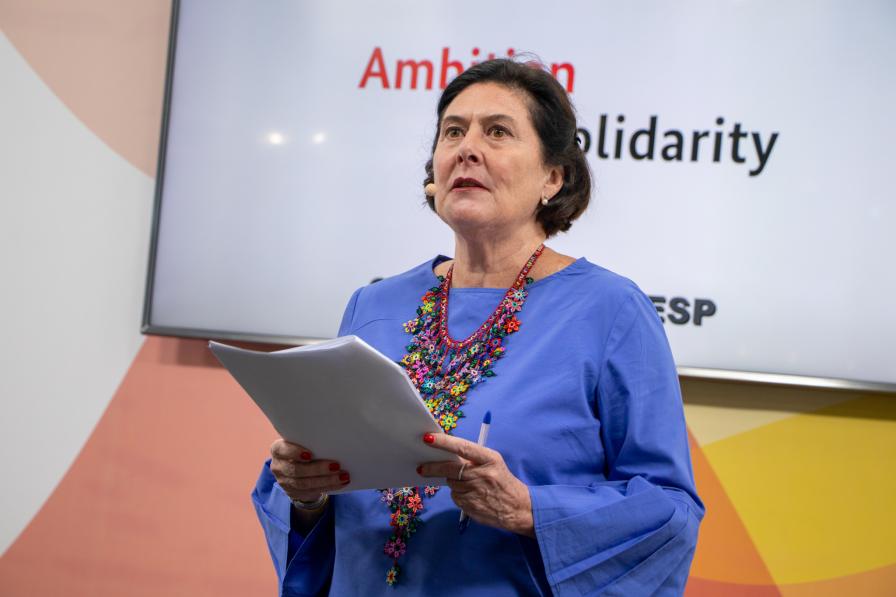
Giovanna Valverde, Costa Rican Permanent Representative to UNEP and UN-HABITAT and Ambassador to Kenya
